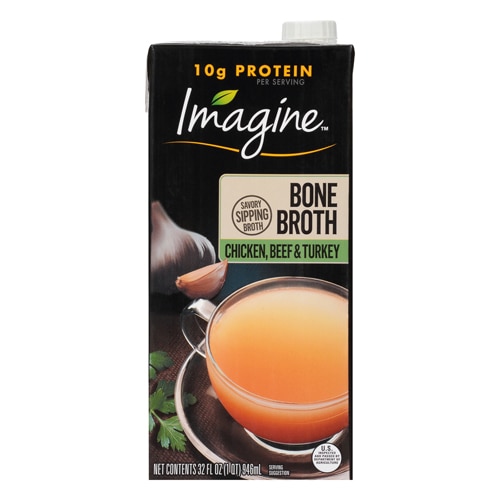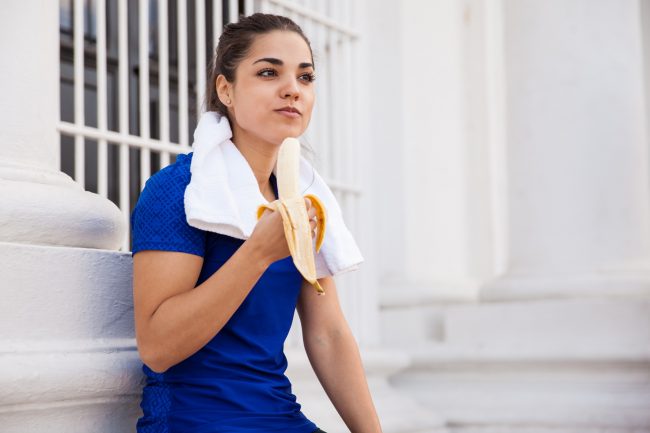What you put in your body has a tremendous impact on what you can expect to get out of it. Athletes have known this for centuries. Yet, you still see the rise – and eventual fall – of health trends. One that never seems to escape the circuit is the notion of eating a high-carbohydrate diet. Ask any endurance athlete what they should eat before a competition, and the overwhelming majority will tell you carbs, carbs and more carbs – you need carbs for exercise.
You can’t blame them. Carbohydrates do have the potential to provide long-lasting energy.
According to a Colorado State University fact sheet, “For events that require heavy work for more than 90 minutes, a high-carbohydrate diet eaten for two to three days before the event allows glycogen storage spaces to be filled. Long-distance runners, cyclists, cross-country skiers, canoe racers, swimmers and soccer players report benefits from a pre-competition diet where 70 percent of the calories comes from carbohydrates.” This, however, raises two questions:
First question: Do you really need 70 percent of your diet coming from carbohydrates?
The actual percentage of calories that comes from carbs can vary greatly from athlete to athlete.
Some athletes perform at the top of their game with a ketogenic approach. The keto diet, as you may have heard it called, involves very few calories from carbs; the primary source of fuel is fat. Other athletes opt for an authentic Paleo, or ancestral, approach, which highlights in-season, local produce, mindfully sourced proteins and a variety of natural fats. According to Loren Cordain, author of The Paleo Diet: Lose Weight and Get Healthy by Eating the Food You Were Designed to Eat, the macronutrient composition for a true Paleo diet would be closer to 19-35% protein, 28-47% fat and 22-40% carbs.
And what about vegan athletes? They’ve found a completely different approach to diet and endurance that suits their bodies, their sport and their goals.
Second question: What are you eating to reach those carb goals?
A carb is not a carb is not a carb. French fries are a great source of carbohydrates, but they’re also high in saturated fat. Not only is fat slow to digest (meaning it may still be sitting in your stomach come race time), too much saturated fat, in particular, is harmful to heart health. You may have the best laid-out training schedule, more than eight hours of sleep and a dialed-in visualization practice. But if you’re not supplying your body premium sports nutrition, it won’t perform at its ultimate potential.
So what is the best triathlete diet?
Here are three easy steps every type of endurance athlete can do to not only nail their nutrition but reach their performance goals:
Focus on whole food: While bars, drink mixes and gels are convenient, they’re refined, processed and often do not provide the nutrient density you can get from whole foods. Strategic carbs eaten at the right time for performance can suit all dietary approaches – vegan, Paleo and beyond. For instance, a baked yam eaten with dinner the night before a long training ride is a nutritious choice. Or, try a ripe banana and raw almond butter as part of your post-brick replenishment. These foods are usually more easily digested (and enjoyed) than premade powders and mixes.
Reduce sugar intake: Ignore messages that encourage eating anything and everything, as long as you eat enough calories. In the short term, this eating routine results in gastrointestinal distress and impaired performance. In the long term, you create an increased risk for health issues, such as type 2 diabetes. A recent study showed that a common problem in subjects, who typically averaged at least six hours of training a week, was high blood sugar throughout the day. This outcome pointed to an elevated risk for type 2 diabetes in these seemingly super-fit athletes (4).
Nourish your gut. It’s not just about what not to eat; it’s about what to be sure to include. Athletes create inflammation by the sheer nature of the training, even if you’re diligent about rest and recovery. If you don’t also address inflammatory foods, you could be setting up yourself for inadequate rest, recovery and subsequent performance. Bone broth, fermented foods such as kim chi and a high-quality probiotic are must-dos on a daily basis. And, of course, don’t forget your fresh, local greens and healthy fats.




